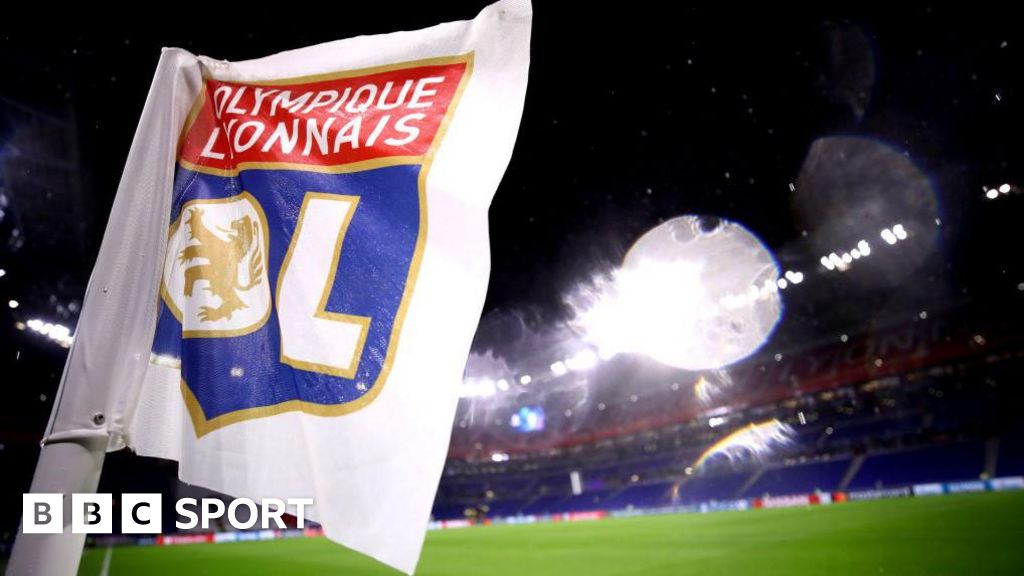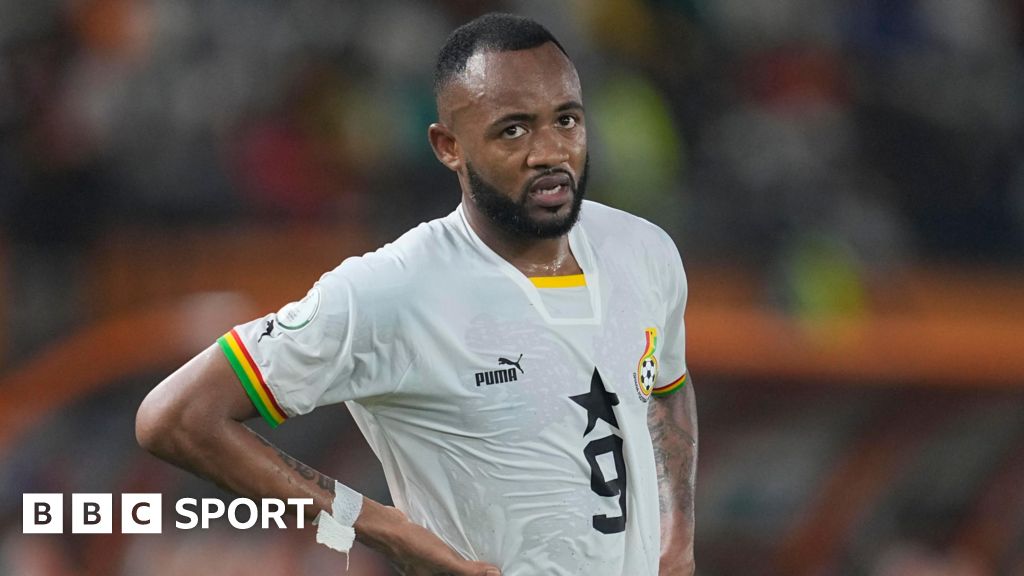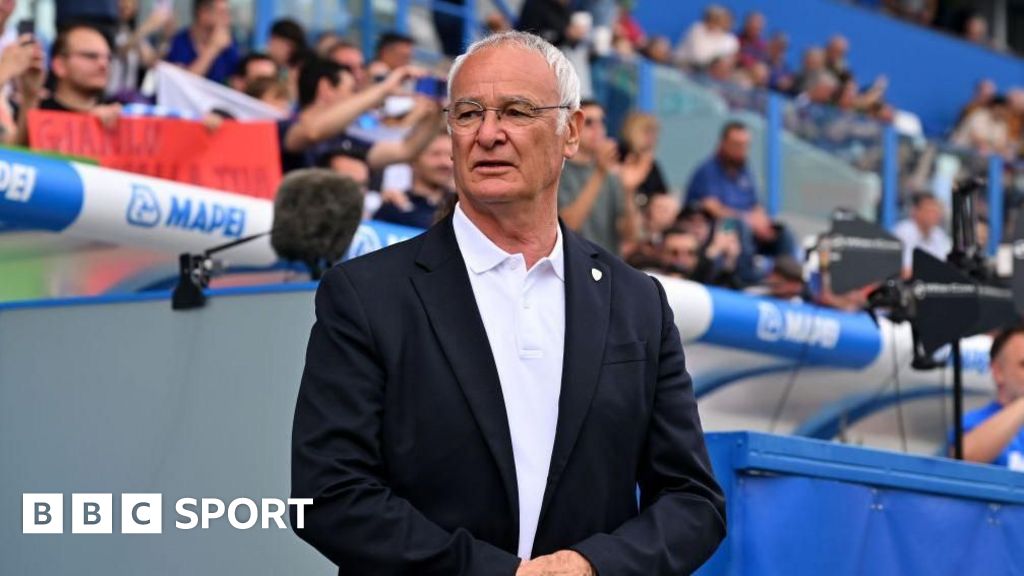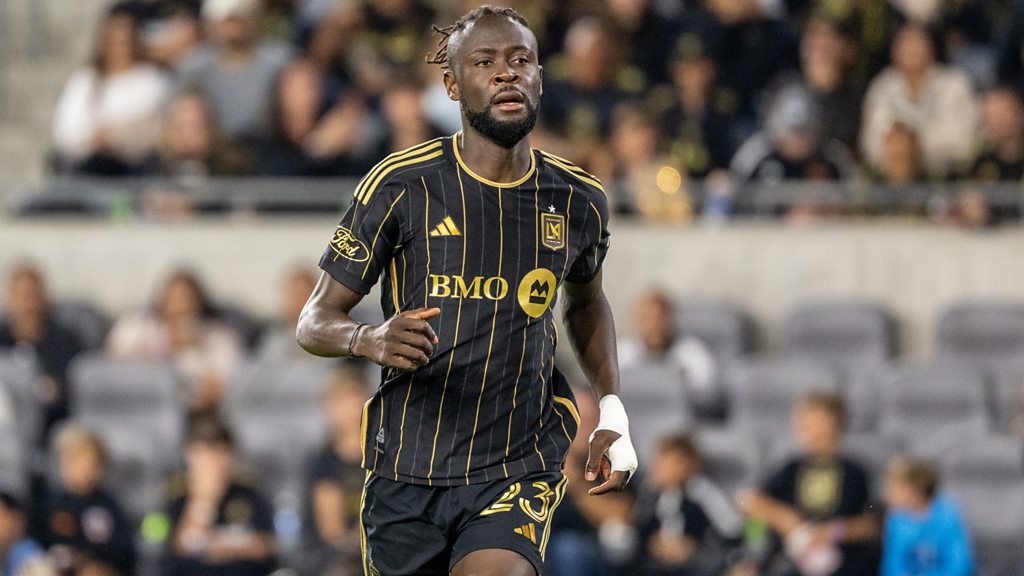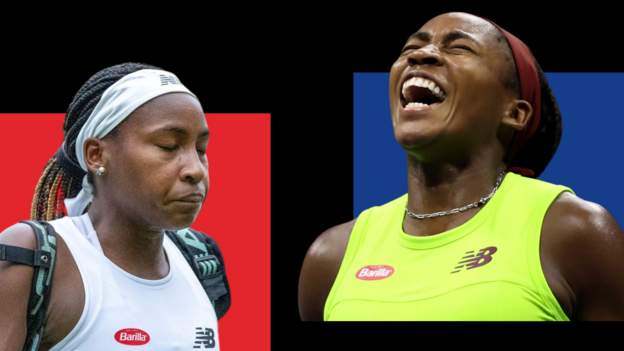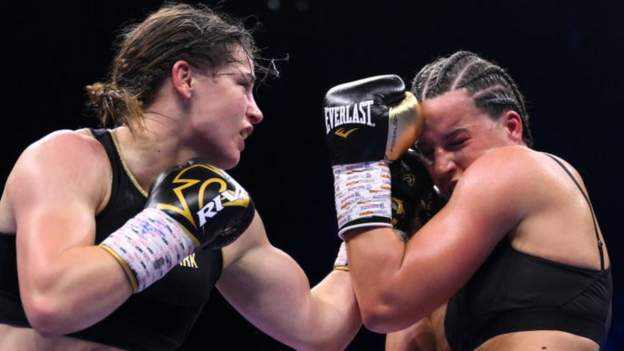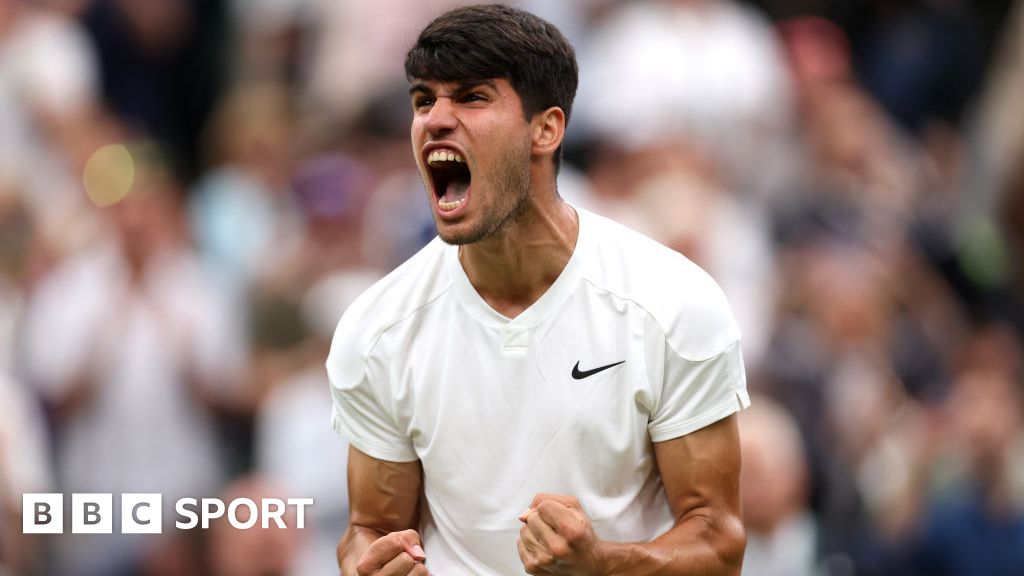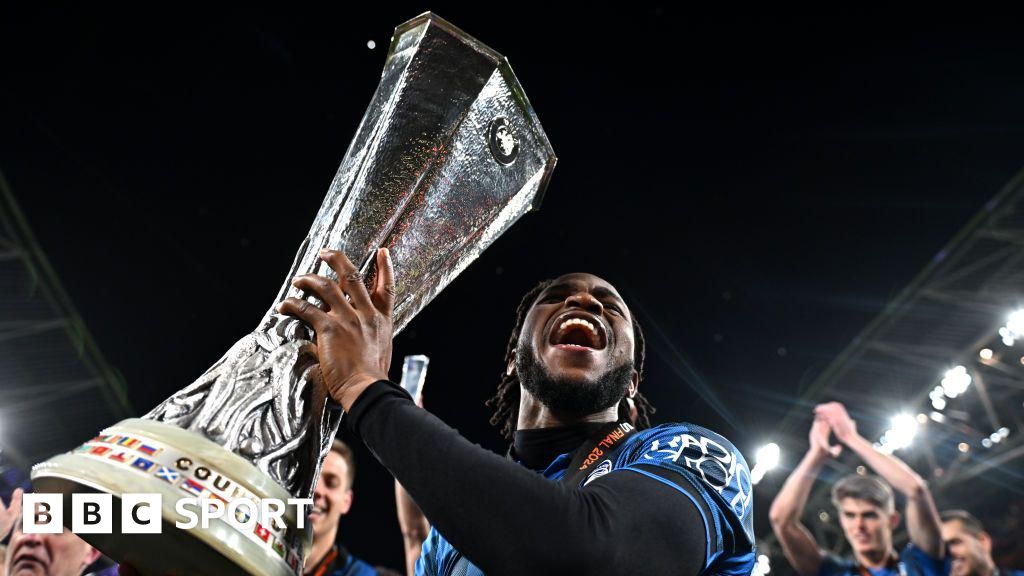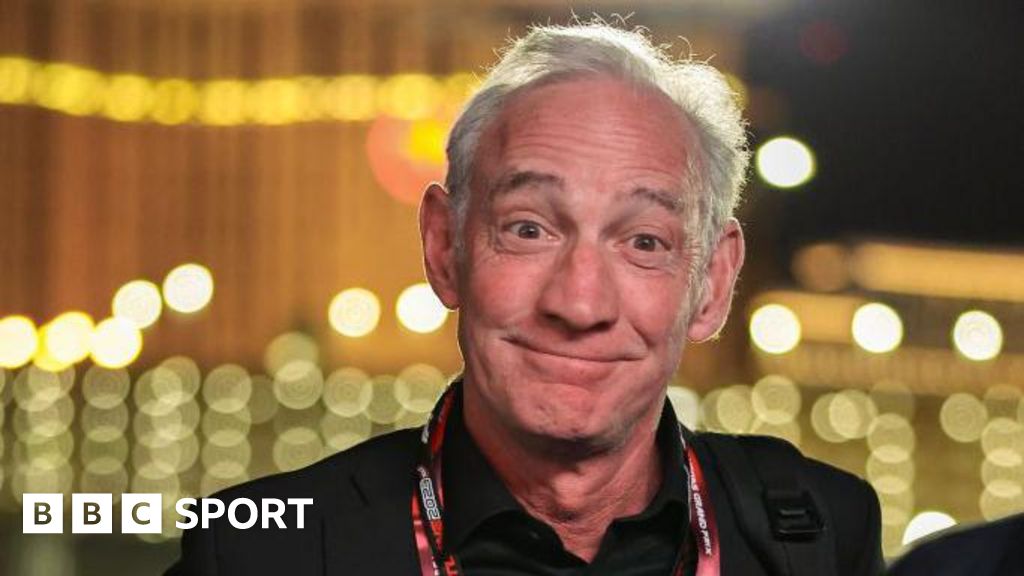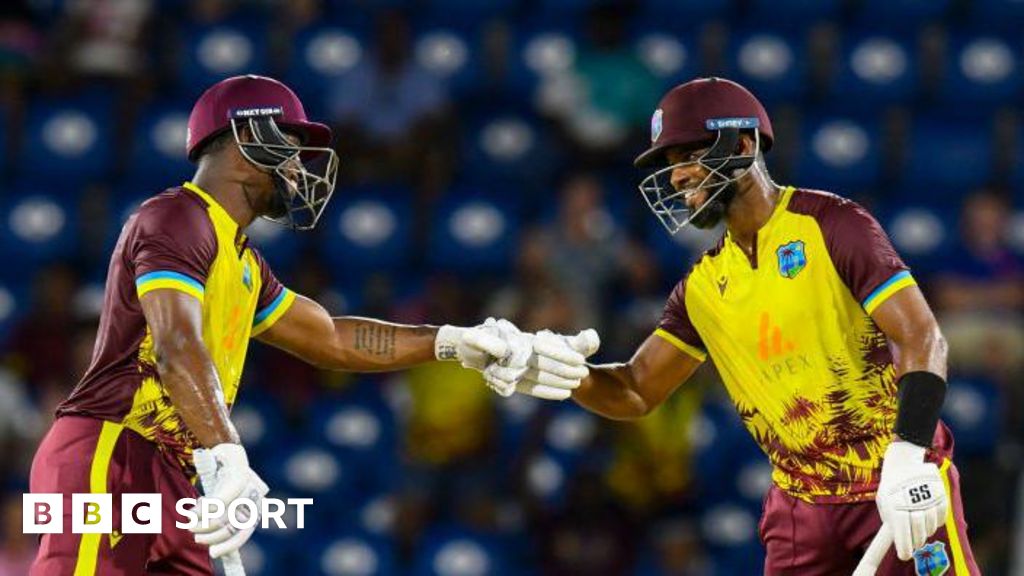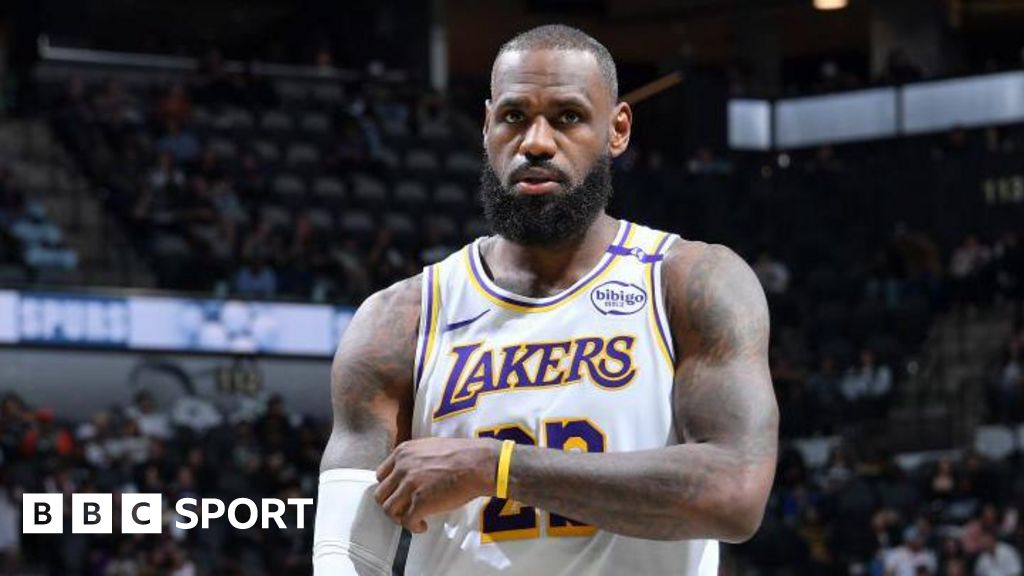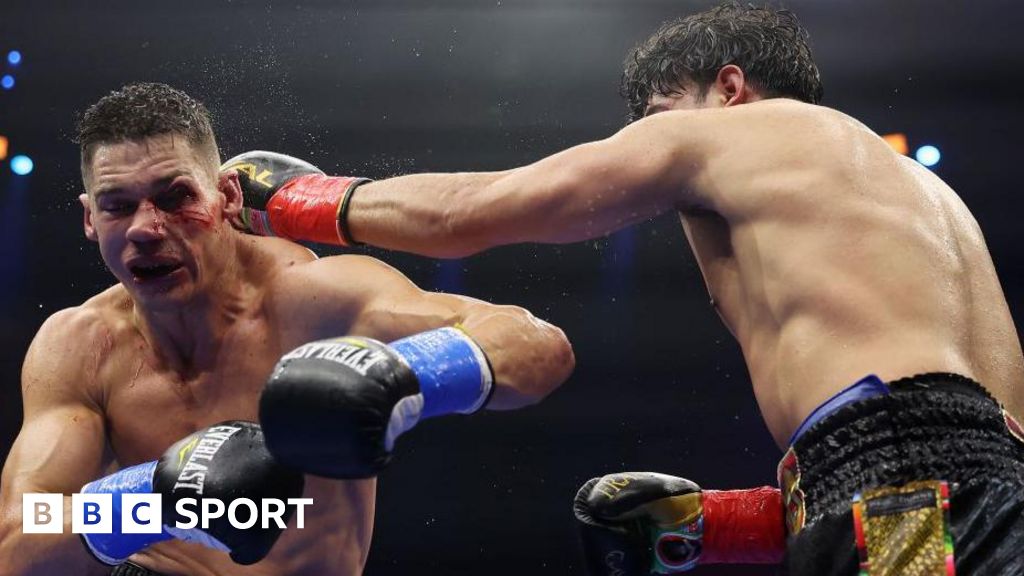| Venue: Flushing Meadows, New York Dates: Saturday, 9 September |
| Coverage: Live text and radio commentaries across the BBC Sport website, app and BBC Radio 5 Live and 5 Sports Extra |
If a picture paints a thousand words, the image of Coco Gauff disconsolately trudging off court at Wimbledon told us everything.
The 19-year-old American looked startled, drained even, as the emotion of a humbling first-round defeat by qualifier Sofia Kenin hit home.
Gauff’s usual effervescence had, understandably, still not returned when she spoke to the media a couple of hours later.
While displaying her equally-omnipresent eloquence, the answers about the loss were straight to the point.
Frustrated. Disappointed. A catalyst to work even harder.
“I feel like I have been working hard, but clearly it’s not enough. I have to go back to the drawing board and see where I need to improve,” Gauff said at the All England Club.
Two months later she has improved considerably.
This fortnight Gauff has stormed into her first US Open singles final, where incoming world number one Aryna Sabalenka stands in the way of a maiden Grand Slam title.
It has come on the back of a morale-boosting run during the North American hard-court swing, where she won the two biggest titles of her career so far in Washington and Cincinnati.
“Putting together the title win in [Washington] DC was huge,” Jarmere Jenkins, part of Gauff’s new-look coaching team, told BBC Sport.
“It let her know that she can do this, she belongs here and gave her a boost of confidence. We’ve been able to ride that momentum since.
“Coco has always belonged. She has always proven she is meant for the big lights.
“The tools were already there. People say things about technique but sometimes what is missing is the faith.
“So far in New York she has been able to show up and execute the game plan. She has been solid: mentally, spiritually and emotionally.”
Maturing Gauff handling the expectation
Gauff burst on to the scene as a 15-year-old phenomenon at Wimbledon in 2019, creating history by becoming the youngest player in the Open era to come through qualifying.
In her first main draw appearance, Gauff memorably beat five-time champion Venus Williams, one of her idols, before losing to Simona Halep in the last 16.
Gauff captured the world’s attention, leading to many predictions – some wilder than others – about how many Grand Slam titles she would go on to win.
The more measured analysis was that she would need time to mature on the court and develop her game when she transitioned full-time to the WTA Tour.
Her progress since then has been significant but steady, becoming a fixture in the world’s top 10 over the past 12 months without yet winning a major title.
Defeat in the French Open final last year, winning just four games against Iga Swiatek, left Gauff in tears as she sat on court afterwards.
Reflecting on that experience, she said: “The whole tournament felt like a surprise to me. I was relieved that I made it to a final because so many people expected a lot of things from me.
“I just didn’t really believe that I had [winning the title] in me, especially playing Iga, who was on a winning streak.
“But this time around, I have been focusing more on myself and my expectations of myself.
“I really believe that now I have the maturity and ability to do it. Regardless of what happens on Saturday, I’m really proud of how I have been handling the past few weeks.”
How an experienced team has provided belief
One of the key factors behind Gauff’s improved results has been the recently-assembled coaching team guiding her.
Pere Riba, a Spaniard who previously worked with Chinese player Zheng Qinwen, heads up the staff.
The vastly-experienced Brad Gilbert – best known for helping Andre Agassi win six major titles and coaching Andy Murray – arrived last month as a consultant.
Jenkins, another American who used to be Serena Williams’ hitting partner, was also brought in earlier this year.
“Having all these experiences in one team really gave her a boost of confidence,” Jenkins said.
“It enabled her to think: ‘These guys know what they’re talking about and I trust what they’re saying. All I have to do is listen, apply it and execute it’.”
Gauff’s forehand has been identified as a weakness and is often targeted by opponents, leading to self-evaluation from the teenager in news conferences.
Jenkins, however, disputes it was a serious technical issue.
“We didn’t do anything technically with her forehand,” he said.
“We gave her a couple of mental representations that she could use when she is out there, whether it be footwork or being aggressive, picking the right moments and managing it well.
“For me there have been people with way worse situations going on with their forehand than Coco and been able to win Grand Slams.
“It was never about the technique. It was about the belief, the confidence and the faith.”
Why Gilbert helps lighten the mood
A lot of attention has been placed on Gilbert, a former world number four player turned coach and commentator.
Twenty years ago, he famously wrote a book called Winning Ugly: Mental Warfare in Tennis.
Gauff has been doing just that at Flushing Meadows, overcoming adversity in several of her matches on her way to the final.
“When you’re confident and clear in what you’ve got to do it puts your mind at ease,” Jenkins said.
“Before I feel she was going out there and hoping to play well. Now she is going into a match like ‘I’ve got this if I play well or if I don’t’.
“A lot of matches she has been winning has not been her best tennis, but the best tennis is going to come.
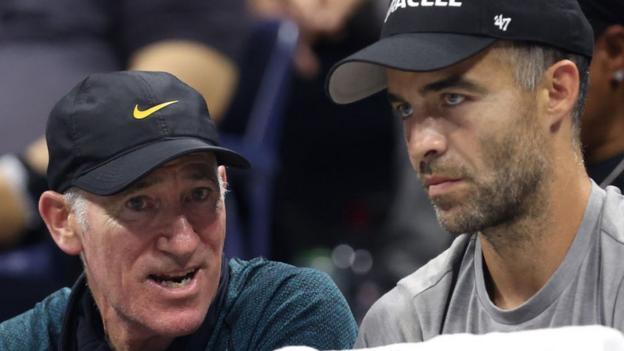
“Brad has a great saying that five days of the year you’re going to play great [and] five days of the year you will play terrible. In between that time you’ve got to compete your ass off.
“We’ve really embraced that mentality and it has been working.”
Finding the right blend of personalities in the team – off court as well as on – can be difficult for a player.
Gauff – who is very much her own boss but is still guided by parents Corey and Candi – has been at ease with the current dynamic, illustrated by how hilarious she has found some of Gilbert’s quirks.
Gilbert’s habit of regularly eating hard-boiled fruit sweets during matches, his tendency to use only even numbers when speaking and his unorthodox sleeping patterns provide fun talking points.
Taking it in turns to choose the music in the car rides in New York is another way for Gauff and the team to build camaraderie.
Gauff, who counts J Cole, SZA and Jaden Smith among her favourites, shares similar taste with Jenkins, while Gilbert is a classic rock man and Riba prefers Spanish dance beats.
“That’s one of the coolest experiences I’ve personally had with a team,” Jenkins said.
“We will play some tunes, talk about the match, sometimes talk about something funny which happened earlier in the day.
“It’s a really down to earth group of people and we all have the same goal in mind – trying to get Coco this first Grand Slam and then many more.”
Gauff & Williams share sky-high standards
As a precociously-talented black American teenager, Gauff has regularly been compared to 23-time major singles champion Serena Williams.
Gauff has followed in the footsteps of her idol this fortnight, becoming the first American teenager since Williams in 1999 to reach the Flushing Meadows final.
The pair have different styles, with Gauff considered less attacking than Williams, who used her power to dominate opponents.
“I’d hate to compare them. They are two different people, they approach the game so differently,” said Jenkins, who worked with Williams in the latter part of her career until she retired last year.
“What I would say is they both hold themselves to such sky-high standards, day in, day out.
“Even when Serena was trying to get wins, she never wanted to come to a tournament and not think we were going to win it. That’s the same with Coco.
“They both have this unwavering, unconditional willingness to do whatever is asked of them and always leave it all out there.”

